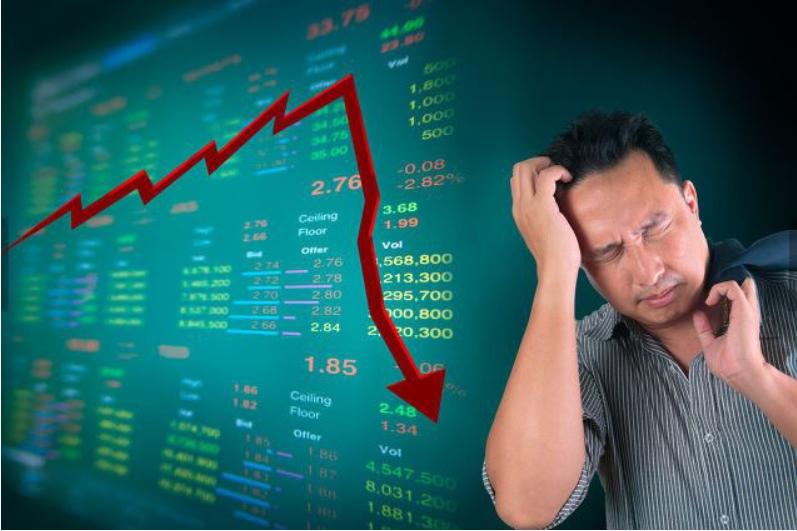
In the tense situation in the Middle East and the shadow of the U.S. economic recession, the U.S. stock market was sold off last week, the three major indexes are down more than 2 percent, the Nasdaq is falling into correction territory, it seems that the upward momentum has reversed. This week will continue to focus on the prospect of a Fed rate cut, recession expectations and developments in the Middle East. At the same time, many major stock markets in the United States, Europe and Asia have fallen to varying degrees. For example, the US stock market staged an epic slump after the non-farm data explosion, with the Dow, Nasdaq and S&P 500 all falling sharply; European stock markets such as Germany's DAX30 index and Britain's FTSE 100 index have not been spared; Stock markets across the region were also hit hard, with Japan in particular suffering more sharply.
The factors that cause the global stock market crash are also complex and diverse. One is macroeconomic factors, and the stock market crash is often closely related to the recession stage of the economic cycle. Factors such as slowing economic growth, rising unemployment, and declining consumption power will directly affect the profitability of listed companies and investors' confidence, leading to sharp fluctuations or even crashes in the stock market. When a country's macroeconomic fundamentals deteriorate seriously, such as the decline in GDP growth, inflation, debt crisis, etc., it will have a huge impact on the stock market. These unfavorable factors will weaken the operating ability of listed companies, reduce investors' confidence in the market, and thus trigger a stock market crash.
The second is the market behavior factor, when there is adverse news in the market or investor confidence is severely hit, it will trigger panic selling behavior. A large number of investors have sold their stocks to avoid risks, resulting in a continuous plunge or even crash in the stock market. At the same time, excessive speculation is also one of the important reasons for the stock market crash. When the market is full of speculative atmosphere, investors will blindly pursue high returns and ignore risks, resulting in the accumulation of market bubbles. Once the bubble bursts, it will trigger a stock market crash.
The third is the reason for policy adjustment. When the central bank adopts tightening monetary policies such as raising interest rates and raising the deposit reserve ratio, it will increase the financing cost of the market and reduce the liquidity of the market. That would put pressure on the stock market and could trigger a crash. In addition, regulatory changes will also have an important impact on the stock market. If the regulatory policy is suddenly tightened or changed too frequently and violently, it may cause unease and panic in the market, leading to a stock market crash. To stabilize markets, governments and central banks are likely to adopt a range of policy measures to deal with volatility in the stock market. These measures could include adjusting monetary policy, providing liquidity support, and strengthening market supervision.
Fourth, external events, such as natural disasters such as earthquakes, floods and wars, may have an impact on the stock market. These events can disrupt economic order and investor confidence, leading to large fluctuations or even crashes in the stock market. The global economic crisis will also have a profound impact on stock markets. When the global economy falls into recession or crisis, the stock markets of various countries will be affected to different degrees and may trigger a crash. An escalation in geopolitical tensions could also trigger volatility in global stock markets. For example, tensions in international relations, the outbreak of trade wars, etc., may have an impact on the stock market.
To sum up, the causes of a full-blown stock market crash are multifaceted and intertwined. In practice, investors need to pay close attention to market dynamics and macroeconomic changes, formulate reasonable investment strategies and strengthen risk management to cope with possible risks and challenges. At the same time, the government, enterprises and investors need to work together to take active measures to stabilize the market and promote the healthy development of the economy.

The U.S. third-quarter GDP growth rate, strikingly highlighted at 4.3%, not only surpassed market expectations but also earned the label of "the fastest in two years."
The U.S. third-quarter GDP growth rate, strikingly highligh…
Recently, US personnel intercepted a "Century" super oil ta…
According to Xinhua News Agency, the subtle changes in the …
The rapid development of artificial intelligence has brough…
In December 2025, Taiwan's political scene was shaken by a …
When Apple appears for the Nth time on the list of penaltie…